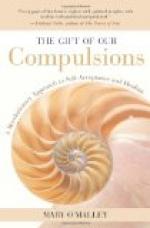Sir,—The call of the Second Universalist Society in Boston, inviting me to the labors of the Christian Ministry with them, together with the liberal terms which accompany said invitation, has been duly considered. And after weighing all the circumstances relative to the subject, so far as my limited mind could comprehend them, I have come to the conclusion that it is my duty to accept their call on the conditions therein stated. I largely participate the “peculiar pleasure” afforded by the consideration of the unanimity of the Society, and entertain an humble hope that, with the continuance of this harmony, we may long continue to enjoy all spiritual blessings in Christ Jesus.
The Society’s most humble servant in Christ,
Hosea Ballou.
To John Brazer, Esq.
He was publicly installed on Christmas day, December 25, 1817. Sermon, from John xx. 24, and the Fellowship of the Churches, were given by Rev. Paul Dean; Installing Prayer and Charge by Rev. Edward Turner, and the Concluding Prayer by Rev. Joshua Flagg.
At the annual meeting in May, 1818, the thanks of the Society were presented to Lemuel Packard, Jr., Esq., for his generous donation of a chandelier for the use of the church. The clock now in the church was the gift of John Brazer, Esq., probably during the time of the building of the church.
In the summer of 1822, Mr. Ballou received an invitation to become the pastor of the Second Universalist Society in Philadelphia, at a larger salary than he was then receiving. In a letter to his Society, Mr. B. states, that they are under no engagement to him beyond the term of six months; and that, his salary being barely sufficient to support his family, he felt bound to lay the invitation of the Philadelphia Society before them for their assistance, in any decision he might make in regard to it. The Society was accordingly called together, and by a unanimous vote his salary was raised to thirty dollars a week. This vote being communicated to him, he informed them in reply that the salary voted him was fully and abundantly satisfactory to him, and that he accepted it with pleasure.
During the year 1836, the Society built the vestry in the attic story of the church, and the following year, 1837, the interior of the church was altered by a new pulpit, ceiling, introduction of gas, painting, &c. at an expense of nearly five thousand dollars. And in the year 1840, the Society purchased the organ now in the church.
During the first years of the existence of the Society, the singing was considered of a superior order; and it may be interesting to some of the younger members of the Society to know that, in 1833, the Standing Committee approved of the selection, by the choir, of Miss Charlotte Cushman, as the leading female singer. Mr. Win. Barry, one of the original proprietors, and at present one of the oldest men of the congregation, conducted this part of public worship for several years.




